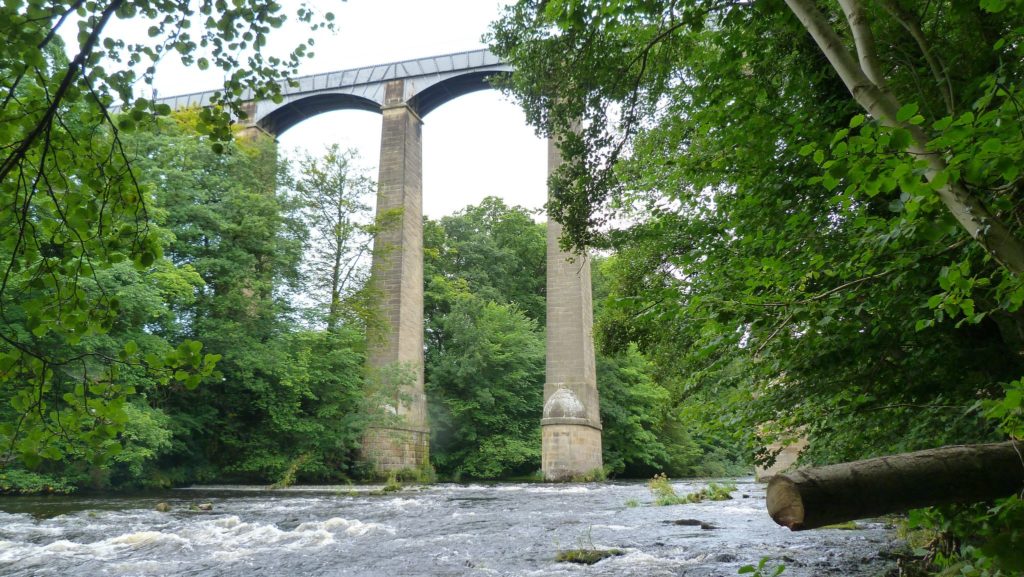Wales’ battlegrounds: Clwyd South

No. 33 on the Conservative’s target list, a victory here would suggest a healthy Tory majority. Aled McKenzie looks at how it could swing this time…
Welsh people often like to describe their own region of the country as Wales in a microcosm, but in Clwyd South’s case this may well be somewhat accurate.
According to Dennis Balsom’s three Wales model you will find three different parts to Wales:
- the Welsh-speaking Fro Gymraeg
- the English speaking but Welsh identifying Welsh Wales; and
- the British identifying British Wales.
As we’ll see, all three of these different nations of Wales converge in this constituency.
British Wales
In the most easterly wards of Clwyd South you find historic villages such as Overton and Bangor-on-Dee which would not look out of place in the Shires of England.
Indeed, even in the Middle Ages the area was referred to as Maelor Saesneg.
This area has traditionally been the bedrock of the Conservative vote in the constituency.
Theresa May’s recent low-key visit to Bangor-on-Dee confirms that while they fancy their chances in this seat they do realise where the core vote is.
Welsh Wales
The bulk of the population of the constituency lives in a line of former pit villages and post-industrial towns that split the constituency in two from Brymbo to Chirk.
This is where, much like across Wales, Labour have historically gathered their largest number of votes.
However, as we saw at last month’s local elections when several independent councillors were chosen, people are beginning to lose their generation-long habits of putting their x in the Labour column.
The coal-mining and steel producing villages of Brymbo and Bryn Cefn elected Conservative councillors, suggesting that the Tory brand is beginning to lose its toxicity.
Wrexham County Borough (which makes up most the constituency) also voted Leave by a wide margin. Could the traditionally Labour-supporting working class turn to the Tories there?
Y Fro Gymraeg
Plaid Cymru could also do well in some pockets in the North Wales coalfield. There’s no doubt however that their strongest support will come from the Welsh-speaking west.
Llandrillo and Corwen are as much a heartland for Plaid as any part of Gwynedd, and they can count on support in the Ceiriog Valley and Llangollen as well.
What could prove decisive however is whether these traditionally Plaid-supporting voters break towards Labour to keep the Tories at bay.
There could also be support for the Conservative amongst the socially conservative, Brexit-supporting farming communities.
Having said that, the Denbighshire wards of Clwyd South were said to be far more pro-remain than Wrexham and the north of Denbighshire.
As a result, these areas may not be as promising for the Conservatives as they appear.
The Significance of Tactical Voting
The Labour leaflets stress the local roots of their candidate Susan Elan Jones, a Welsh speaker from Rhosllanerchrugog.
The Conservative candidate, Simon Baynes, meanwhile, is a former banker who lives in Powys.
Even though Baynes’ only tallying 4,800 votes in last year’s Assembly election, Labour recognises the threat and are appealing to voters from the smaller parties for support.
Unlike neighbouring Wrexham, a UKIP candidate is standing and while it is inevitable that while their overall vote share will fall they may well retain a crucial percentage of the Brexit vote.
What little support the Liberal Democrats have left in the area is centred around Rhosllanerchrugog and the former AM and council leader Aled Roberts, who surprisingly failed to win a seat at the recent local elections.
It is an urban rather than a rural vote, and if they were to vote tactically I would imagine that Labour would be the beneficiary.
Conclusion
If Clwyd South represents the many nations of Wales, it is no surprise that, like Wales itself, it has been dominated by the Labour party.
If the Tories do succeed in picking up this seat it could signal the start of a changing of the guard in Welsh national politics.
Support our Nation today
For the price of a cup of coffee a month you can help us create an independent, not-for-profit, national news service for the people of Wales, by the people of Wales.






Diolch, these seat overviews are very handy